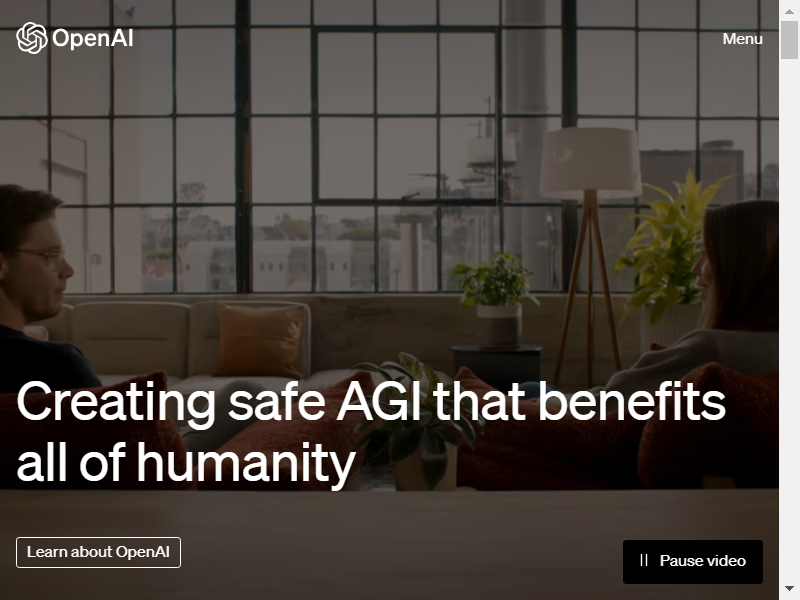
OpenAI envisions a future where artificial general intelligence (AGI) transforms society positively and inclusively, benefiting all of humanity. We advance the frontier of AI technology with a commitment to safety, ethics, and openness, ensuring that powerful AI tools enrich lives and expand human potential.
By pioneering innovative AI models—from language understanding with GPT to image creation with DALL-E and programming assistance with Codex—we are building versatile platforms that empower developers, enterprises, and everyday users in novel and meaningful ways. Our work bridges cutting-edge research and practical impact, shaping a new era of intelligent technology.
At our core, we harness advanced machine learning and scalable cloud infrastructure to drive AI development transparently and responsibly. We are defining the future of AI not just as a technology company but as a steward of societal progress, striving to create tools that amplify creativity, communication, and problem-solving worldwide.
Our Review
We've been watching OpenAI since its early days, and honestly, it's been one hell of a ride. What started as a nonprofit with lofty ideals about democratizing AI has become the company that basically made "AI" a household word overnight. Their journey from research lab to tech giant feels like watching a startup grow up in fast-forward.
The ChatGPT Moment That Changed Everything
Let's be real — most people hadn't heard of OpenAI until ChatGPT dropped in November 2022. We'd been following their GPT releases for years, but ChatGPT was different. It wasn't just another research paper; it was AI you could actually talk to.
The speed of adoption blew our minds. Within weeks, everyone from students to Fortune 500 CEOs was experimenting with it. We've never seen a tech product capture mainstream attention quite like this — not even the iPhone had this kind of immediate cultural impact.
What Impressed Us Most
OpenAI's technical progression has been genuinely impressive. Going from GPT-2 (which they initially thought was too dangerous to release fully) to GPT-4's multimodal capabilities shows serious engineering chops. The fact that they built DALL-E and Codex alongside their language models proves they're not just one-trick ponies.
But what really caught our attention was their approach to safety and deployment. They've consistently erred on the side of caution, sometimes to the frustration of the tech community. That measured approach feels refreshing in an industry that often moves fast and breaks things.
The Corporate Evolution Dilemma
Here's where things get interesting — and a bit messy. OpenAI's transformation from nonprofit to "capped-profit" entity reflects the reality of building cutting-edge AI: it's expensive. Microsoft's $13 billion investment and that eye-watering $500 billion valuation show just how much capital this game requires.
We appreciate their attempt to balance profit motives with their original mission, but let's be honest — it's complicated. The recent management drama and ongoing legal battles over training data suggest they're still figuring out how to navigate these competing interests.
Who Should Pay Attention
If you're a developer, OpenAI's APIs are probably already on your radar. Their tools have become essential infrastructure for anyone building AI-powered applications. For enterprises, they've proven that AI can deliver real business value beyond the hype.
But even if you're not in tech, OpenAI matters. They've essentially created the template for how AI companies will develop and deploy their technology. Whether that's ultimately good or bad for humanity remains to be seen, but there's no denying their influence on the industry's direction.
Feature
GPT series for natural language processing
ChatGPT conversational AI
DALL-E for image generation from text
Codex for AI programming assistance
Multimodal AI with GPT-4 including text, image, and voice analysis








